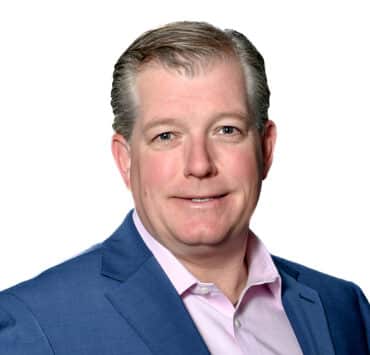|
Getting your Trinity Audio player ready...
|
Content Sponsored by Citi
Samantha Santos remembers when the head of HR congratulated her on a mentorship program she revived from scratch at Bloomberg. Santos was acting as the leadership and development pillar for both the Latino and women’s employee resource groups and had begun informally pairing up employees who could support each other’s journeys and create more seats at the table for underrepresented communities.
“When the head of HR came to congratulate me on the program, I said, ‘What program?’ This was just an idea I had, but word had gotten around fast.”
In short, Santos is a natural. The current head of diversity and inclusion strategy at Citi has been in the HR space for twenty five years and in the DEI space specifically for eight, far longer than most companies have dedicated resources to building out space for people from underrepresented backgrounds.
The self-professed “Nuyorican” who grew up Manhattan’s Lower East Side doesn’t have the academic bonafides you might expect of someone at her level. She attended public school her entire life, earned her bachelor’s degree at a public university while raising her son as a single parent, and immediately got to work.
Her resume now includes Citi, one of the largest banks in the world, Goldman Sachs, Facebook, and Bloomberg. It’s quite a list for a woman who had to go on public assistance for two years while trying to finish school and provide for her child. And Santos is determined to help more people whose backgrounds may defy easy categorization to find success, belonging, and equity.
“I have been at speaking engagements where people have literally thanked me for coming to the event with my natural hair.”
Samantha Santos
“I think part of what propels me forward is just thinking about the role we have to play in lifting as we climb,” Santos explains. “We have to be intentional about how we show up and how we support others. It’s important for us to create spaces where people of all different walks of life can thrive.”
Santos says working in the DEI space requires a strong differentiation between the role of an activist and the role of an advocate.
“As an activist, I can be loud and disruptive, and I don’t really have to worry about meeting people where they’re at, because I’m trying to push my message forward,” Santos says. “That isn’t the work I’m doing. As an advocate, you have to act with more tact and diplomacy and figure out how to disrupt the system in a more constructive way that brings people along the journey. If I want to be an activist, I need to join a nonprofit, because that kind of work is just a whole different ballgame.”
Santos isn’t placing value on one or the other, but the distinction is instructional in helping chart who owns success advocating for DEI on behalf of global organizations. That global footprint was precisely what lured Santos to Citi in 2022.
“Citi is the world’s most global bank,” Santos says. “That globality demands that we embrace all cultures. We’re an amazing melting pot here, so how do we get people to feel that, stay connected, and make sure that we’re really walking our talk?”
It’s still early in Santos’s tenure, but the executive says that building her team and helping define the vision for her organization has been rewarding. At present, she sees her biggest challenge as the sheer size of Citi. Embedding DEI in the culture of the organization is going to require active contributions from far more of the company than Santos’s team.
“As an advocate, you have to act with more tact and diplomacy and figure out how to disrupt the system in a more constructive way that brings people along the journey.”
Samantha Santos
“It takes time and it takes a village,” Santos says. “We’re at the point now where we’re still helping the broader Citi community understand who we are and figure out how we can connect with everyone. This change isn’t something that happens overnight, but it’s going to happen.”
In a leadership role, people like Samantha Santos are still incredibly unique. As an Afro-Latina in leadership, she understands how much it can mean for others to see themselves in someone else’s success.
“I have been at speaking engagements where people have literally thanked me for coming to the event with my natural hair,” Santos says. “I know that may sound strange to some people, but I do not think you can discount being able to identify with someone who has achieved some measure of success in their career.”
Santos has had her own mentor along the way. Erika Irish Brown (Citi’s chief DEI officer and global head of talent) has been a constant in Santos’s journey, the two have worked together at three different companies. It’s true executive sponsorship in action, and much like the informal mentoring program she created at a previous company, Santos is finding ways to put her own experiences to work for others.
The executive also recently joined the board of the Jeremiah Program. The nonprofit aims to dismantle the systemic and structural inequities that mothers in poverty face every day, a struggle Santos knows this all too well.
“The system is not designed to help single mothers progress,” Santos explains. “I was essentially told that I had a high school diploma and a couple of years of college, so why wouldn’t I just drop out and get a job? I’m glad I didn’t. There are so many obstacles and such little support, and that’s why I have such a strong connection with the Jeremiah Program.”

